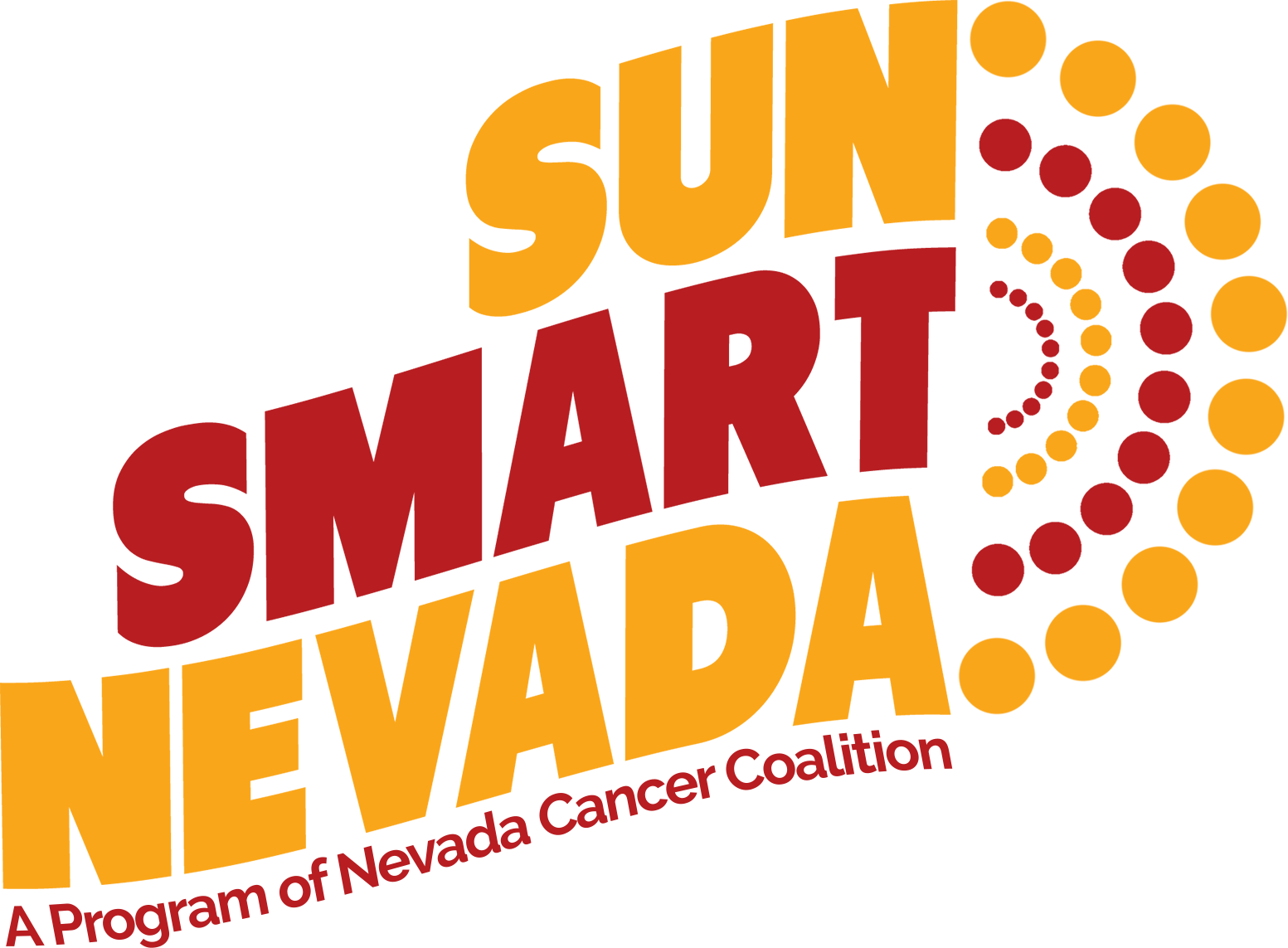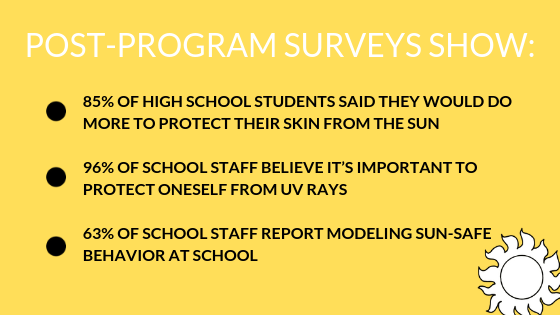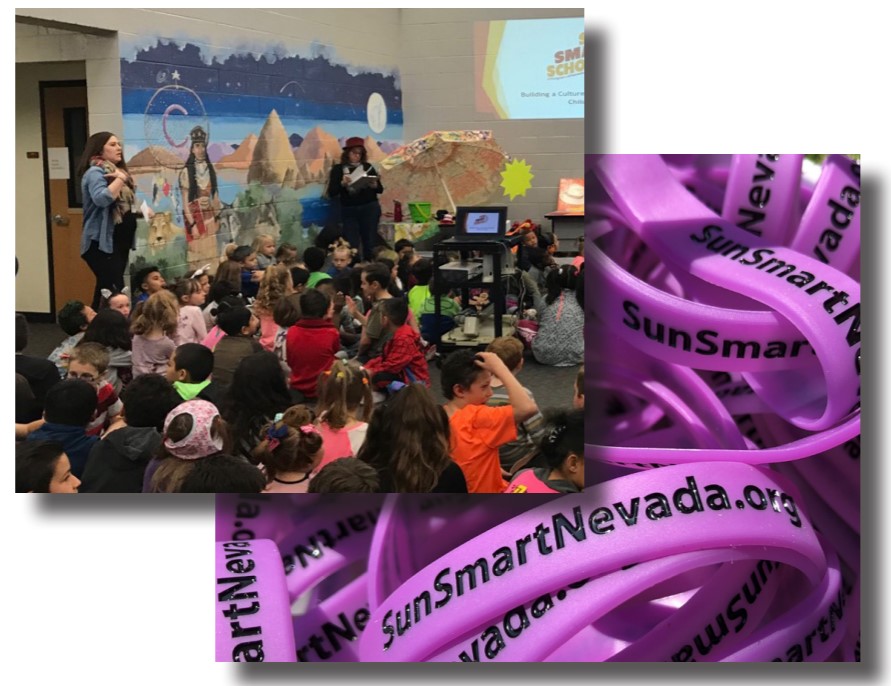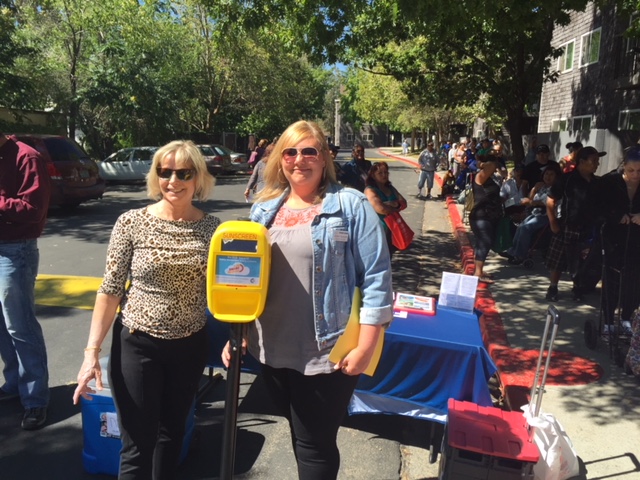Melanoma By The State: Nevada


The seventh largest state in land area in the United States, Nevada boasts a rugged landscape filled with desert valleys and majestic mountains. The state is home to three million people, the fastest-growing population in our union.
With an average elevation of 5,500 feet and around 300 sunny days per year, however, the state’s melanoma rate is also growing. “It is no surprise that Nevada’s geography and active lifestyles make it a high-risk state for the incidence of melanoma,” says Cari Herington, Executive Director of the Nevada Cancer Coalition.
Indeed, the Nevada melanoma estimates for 2018 included 790 newly diagnosed melanoma cases and 90 deaths.
Nevadans Are Taking Action
The Nevada Cancer Coalition’s Skin Cancer Task Force, a coalition of Nevada stakeholders, including AIM at Melanoma, have been working tirelessly over the last several years to implement policy changes to promote melanoma awareness, prevention, and early detection through outreach programs.

In 2013, Nevada became the fourth state in the nation to prohibit minors under the age of 18 from using indoor tanning devices. The law also requires that tanning facilities post a notice in a conspicuous place informing customers of the health risks associated with the use of tanning equipment and that facilities follow certain safety procedures while using the equipment.
The extent of the impact of the law is still unknown, but Nevadans remain hopeful. A 2016 “secret shopper” telephone survey of retail indoor tanning establishments found that a majority of Nevada facilities were adhering to the under 18 ban. A reduction in the number of tanning establishments across the state was also noted.
Unfortunately, in-person visits found that compliance with the signage portion of the law fell short. “Many facilities did not display the warning signage about skin cancer risk. There was also considerable misinformation being shared with patrons about indoor tanning use and safety,” reports Herington. Other states with under 18 bans have reported a similar lack of compliance and misinformation, a troubling pattern. To combat these issues, the Task Force has already begun discussing ways to increase compliance.

In the meantime, under the Sun Smart Nevada moniker, the Nevada Cancer Coalition and its partners designed a number of programs to promote sun safety and skin cancer prevention in schools, workplaces, and outdoor recreational areas throughout the state.

Its most successful program, Sun Smart Schools, offers evidence-based curriculum and access to sunscreen while working with schools throughout the state to adopt sun safety education and sun safe school practices. In three short years, the program has grown to include 53 participating schools, representing more than 22,000 students. Because of its success, Sun Smart Schools has been spotlighted four times on the national stage, including being featured in the Centers for Disease Control Prevention’s 2018 Skin Cancer Prevention Progress Report.
Here are Some of the Program’s Successes:

The Nevada Cancer Coalition and its partners are also taking Sun Smart Nevada’s sun safety message to large outdoor events, ski resorts, adventure water parks, and community health fairs throughout the state. Their booths often feature a melanoma survivor and always provide free educational tools to promote early detection and prevention.

And there is more. Coalition partners offer free sunscreen at key outdoor locations in southern Nevada and in two heavily utilized parks in northern Nevada. They hope to expand access to sunscreen in the near future at municipal parks, pools, outdoor sporting venues, and institutions of higher learning.

Nevada Cancer Coalition’s Christine Thompson (left) and Food Bank of Northern Nevada’s Jenny Yeager (right) with a Sun Smart Nevada sunscreen dispenser at one of the food bank’s Mobile Pantry stops.
Herington, who lost her father to melanoma in 2009, is determined to reduce the rate of melanoma in her state. “No one should have to suffer the devastating effects of this cancer, especially a cancer that, in many cases, could be prevented and even successfully treated if caught early enough. By normalizing skin cancer prevention behaviors, making it a part of our everyday lives, we can change the trend of melanoma for our families and for future generations.”
Here at AIM, we could not agree more.
If you are interested in joining this effort, contact us or call 415-233-3773.
Additional Resources
To learn more about Sun Smart Nevada click here
Learn more about Sun Smart Schools click here
To read Sun Smart School’s Annual Report click here
Sun Smart Schools is a program of Nevada Cancer Coalition, a 501(c)3 non-profit organization. For more information visit www.SunSmartNevada.org or call 775-737-4580.
Recent Posts

Announcing AIM at Melanoma’s Official Sunscreen Partner, WearSPF

Red Hair Genetics: 5 Things You May Not Know

Surviving & Thriving: From Melanoma Survivor to Sun Safety Advocate

Inheriting Cancer Risk Factors


